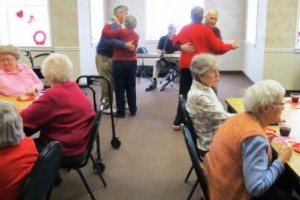 Most everyone over a certain age — let's say 50 for the sake of choosing a number — has had a "senior moment". We can't find the car keys, or we walk into a room with a purpose but once there can't remember the purpose or we draw a blank on someone's name we know well or we are slow to come up with a word we want. For most people, these kinds of memory lapses are a normal part of the aging process, not a warning sign of Alzheimer's disease or other serious mental deterioration. Never-the¬less, these lapses cause us to wonder and worry.
Most everyone over a certain age — let's say 50 for the sake of choosing a number — has had a "senior moment". We can't find the car keys, or we walk into a room with a purpose but once there can't remember the purpose or we draw a blank on someone's name we know well or we are slow to come up with a word we want. For most people, these kinds of memory lapses are a normal part of the aging process, not a warning sign of Alzheimer's disease or other serious mental deterioration. Never-the¬less, these lapses cause us to wonder and worry.
Our memory declines with the normal wear and tear of aging. Alzheimer's disease is not a normal part of that aging. According to the American Psychological Association, fewer than 1 in 5 people age 65 and older and less than half of those 85 and older have the disease. However, it is important to know that our brains do change as we age and it is helpful to be able to distinguish normal changes from those that require medical attention.
If you or a loved one is having "senior moments" that are causing you concern, don't assume that Alzheimer's disease or another form of dementia is responsible. It is important to discuss your concerns with your doctor and ask if a complete medical workup is needed as it could be one of the following common conditions causing memory problems.
- Medication side effects
- Poor concentration
- Vitamin B-12 deficiency
- Thyroid imbalance
- Poor nutrition
- Depression
- Dehydration
- Anxiety
- Infection
- Stress
As important as it is to consult your physician, it is just as important to assess the impact your lifestyle has on your brain. The same practices that contribute to your physical well-being also contribute to having a healthy memory. Some practices that will help keep your memory healthy are:
- Get plenty of sleep — at least 8 hours per night
- Eat right — plenty of fruits and vegetables
- Drink plenty of fluids — 6-8 times a day
- Exercise regularly — walking even 1 mile a day will make a difference
- Socialize — it improves mood and memory to connect with other people
- Make sure you can hear and see as well as possible — keep your hearing aids in good condition and get your eyes examined yearly
- Think positive
There are also things you can do to help you remember.
- Keep a calendar with your appointments and important dates posted on the refrigerator or somewhere you will look at it a couple times a day.
- Put the things you use regularly in the same place when you are not using them — such as keys, glasses, purse or wallet etc.
- Establish a routine - such as taking your medications at the same time every day.
- Keep a "to do" list in a place where you will see it — and cross off items as you complete them.
- Arrange with a friend or loved one to call you at certain times or days — it helps keep you connected.
"Senior moments" do not have to interfere with your daily life. Consider trying some of the ideas mentioned above such as establishing routines, socializing regularly, exercising daily, using a calendar or making a list. Your frustration level may decrease along with your anxiety over what could be simply normal aging. Of course, consulting your physician in addition to trying these ideas is part of the complete plan
